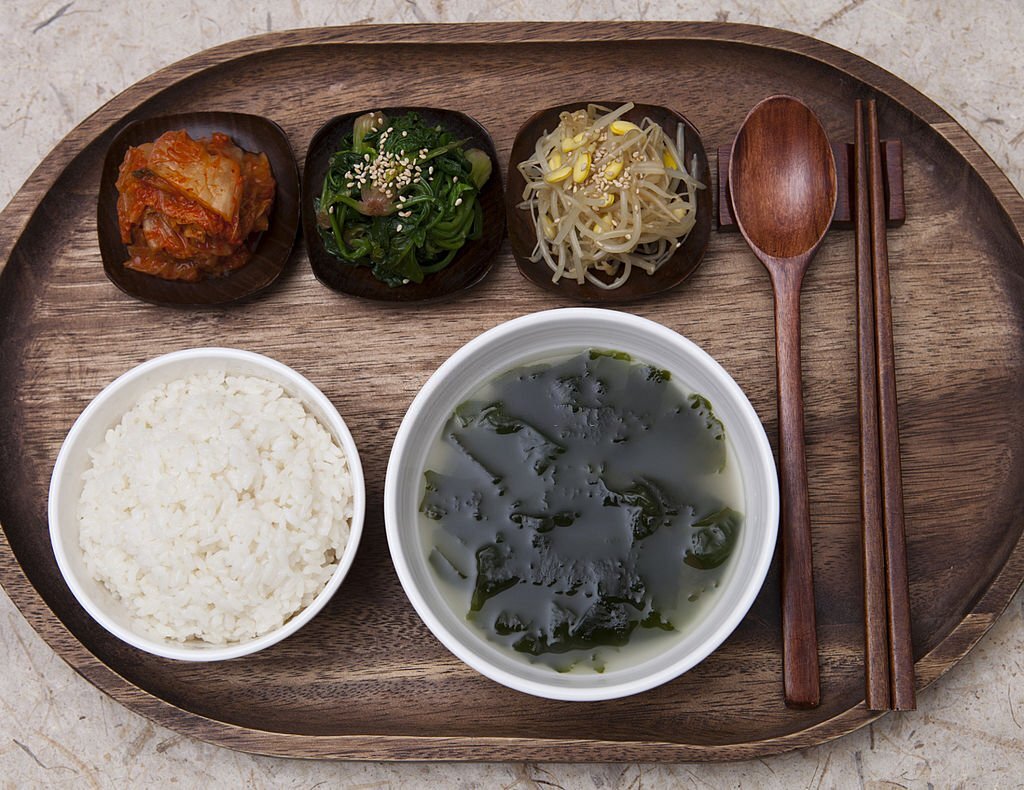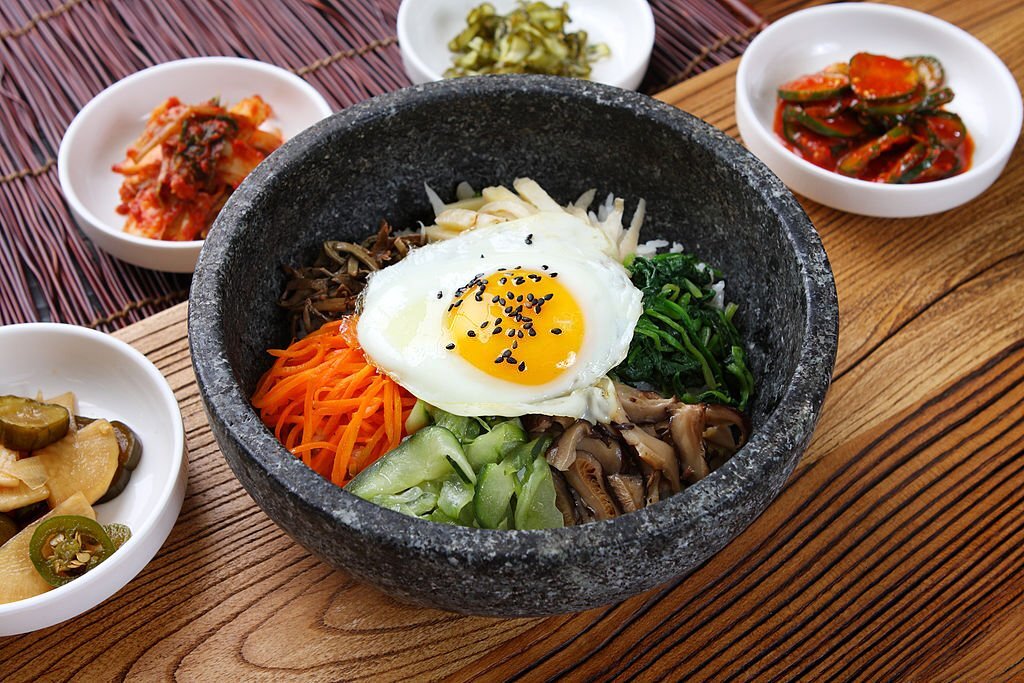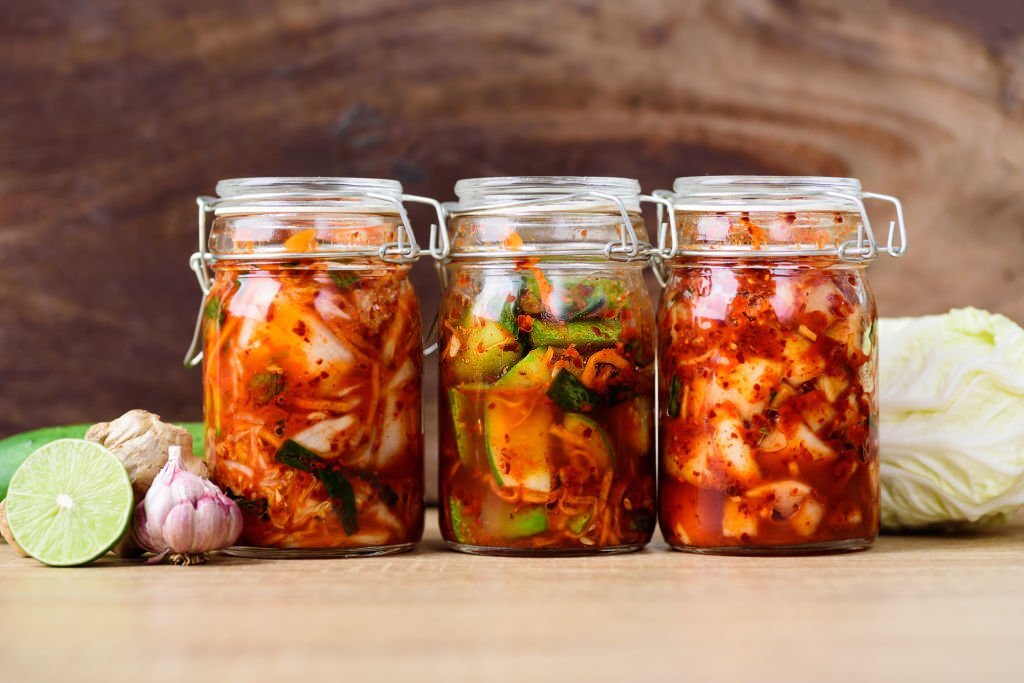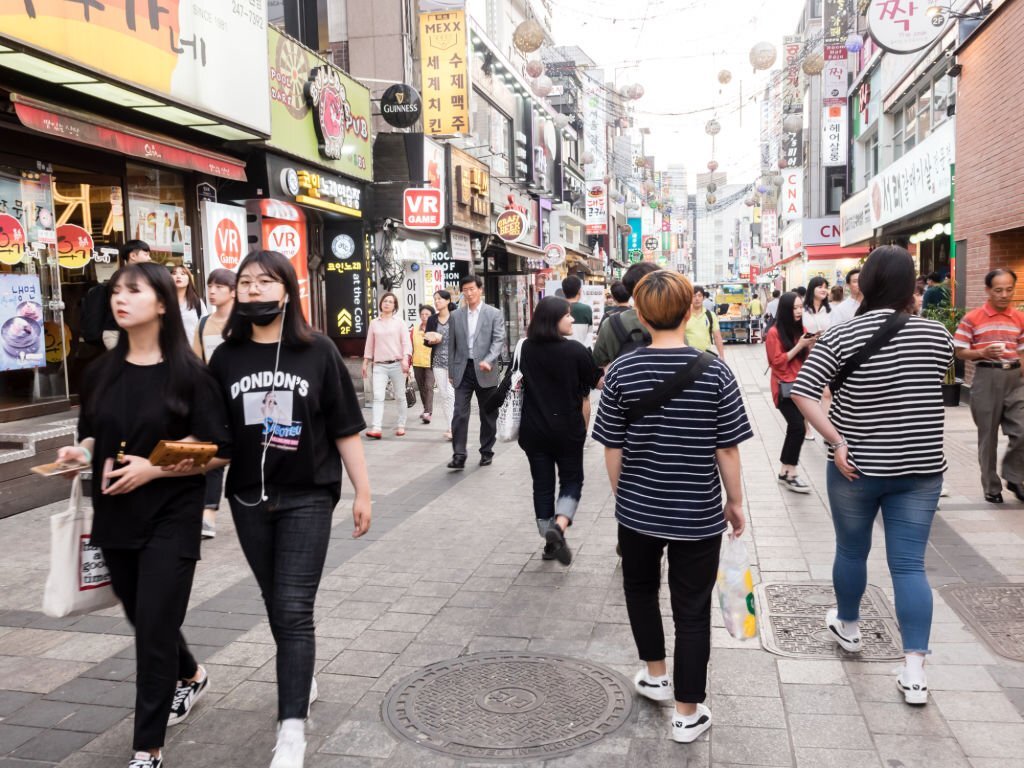If you’ll observe as you walk through the busy streets of South Korea, you’ll notice that the majority of people have slim and fit bodies.
While others struggle and often get frustrated with their weight, Koreans tend to maintain their shape and weight despite eating full-course meals.
Genetics, nutritional, and physical factors all play a part in a person’s body weight. But Koreans focus mostly on their diet or food intake to maintain weight.
Why Do Koreans Eat So Much and Don’t Gain Weight? 10 Reasons

If you’re curious about how Koreans stay fit and healthy, sit back, scroll, and have a read! We’ve listed below the reasons behind why Koreans eat so much and don’t gain weight:
- High Metabolism
- Avoiding Fast Food and Processed Food
- Smaller Portions
- Well Balanced Diet (With a Lot of Veggies)
- No Bread
- Fermented Food
- Koreans Don’t Eat a Lot of Sweets
- Light Breakfast
- Homemade Food
- They Walk and Cycle a Lot
1. High Metabolism

With a high metabolic rate, the body burns more calories rapidly during activity and even while at rest. One reason why Koreans eat a lot without gaining weight is that they have a high metabolism.
Korean cuisine usually includes high-protein food that can boost metabolism, such as tofu and seaweed. It also includes fermented foods, which we’ll also talk about later in this blog post.
Additionally, high metabolism is believed to be hereditary as it is partly genetic—meaning that genetics play a significant role in determining a person’s metabolic rate or body composition.
2. Avoiding Fast Food and Processed Food

Although there are plenty of Western fast-food chains in South Korea, Koreans insist on avoiding fast food because they’re not ideal for a well-balanced diet.
Fast food is high in calories, sodium, and unhealthy fats, and it’s also low in nutrients, antioxidants, and fiber. While some eat fast food occasionally, they still prevent themselves from binge-eating as it can lead to possible health risks such as obesity, inflammation, and digestion issues.
They also avoid eating processed food and incorporating processed ingredients in their meals because of preservatives and low nutritional value.
3. Smaller Portions

Koreans eat less as they consume their meal in smaller portions. Traditionally, they use a small bowl for the rice. Some eat only one to two servings, while others eat less than half a serving.
Rice always comes with a soup/stew, main dish, and some side dishes called Banchan. Although the foods are served all at once, they don’t usually gather each dish on their bowl. Instead, they take enough for themselves to make sure there’s enough for others because sharing food is also important in Korean table manners.
4. Well Balanced Diet (With a Lot of Veggies)

Korean cuisine is generally healthy because the most common ingredients you’ll find in it are vegetables.
Koreans prefer veggies because they’re fibrous, and they make the stomach feel full in just a few bites. It is probably the key reason why they maintain a healthy and fit body without any hassle.
Also, most Korean dishes are low in calories as there’s cooked without much oil, making them weight-loss friendly.
Read More: 15 Healthy Korean Foods You Should Eat More
5. No Bread

While many believe that bread is a good source of carbohydrates and a great way to feel full and avoid the urge to overeat throughout the day, Koreans tend to exclude it in their diet because it’s processed, nutritionally deficient, and high in sugar. It also contains gluten, which makes it difficult to digest.
As a healthier alternative for carb sources, they prefer to eat rice, which always comes in their meals—paired with nutritious dishes.
6. Fermented Food

Traditionally, well-known fermented foods such as kimchi (fermented cabbage), cheonggukjang (soybean), and jeotgal (salted seafood) are widely consumed by Koreans.
Fermented foods and beverages support weight loss and improve gut health and immunity. They are essential in Korean cuisine, so Koreans don’t have to put extra effort into including them in their diet—it basically explains why Koreans are effortlessly healthy.
But what makes fermented food beneficial for health and weight loss? The answer is fermentation itself. It is a process where microorganisms such as bacteria, yeast, and mold break down and convert carbs and sugar into lactic acid bacteria to preserve and make the food healthier.
Read More: Weird Korean Dishes
7. Koreans Don’t Eat a Lot of Sweets

Koreans don’t usually include dessert or sweet courses in their meals. So, instead of sweets, they eat fruits to make them feel satisfied after a meal. But nowadays, popular Korean desserts like bingsu (Korean shaved ice with healthy toppings such as chopped fruits or red beans) often hit the Korean table, especially during summer.
Just like the others, Koreans also crave sweet treats such as chocolates, candies, and cakes. They might eat some to satisfy their taste buds, but they consume them in moderate quantities to avoid high sugar intake, which can cause weight gain and various health risks.
8. Light Breakfast

For Koreans, breakfast is also the most important meal of the day, especially when they’re trying to lose weight. Instead of bread and coffee, they start their day with a very light breakfast, including the same foods or dishes as they would eat at any other meal.
Typically, a Korean breakfast consists of steamed rice, warm soup, and a few meat or egg rolls with vegetable side dishes. But they also sometimes eat the popular grab-and-go Korean toast packed with egg, cabbage, carrot, ham, and cheese.
You May Also Like: Korean Male Beauty Standards
9. Homemade Food

Koreans prefer home-cooked meals than fast food takeaways and restaurant meals to ensure quality and nutritional value. Preparing meals for themselves gives them control over the food’s portion and content, which is beneficial, especially for those who follow a strict diet.
While homemade food allows them to prepare and eat meals exactly how they want to, it also prevents them from consuming artificial flavors, fatty/processed ingredients, and food allergens.
10. They Walk and Cycle a Lot

Apart from a healthy diet, Koreans lead an active lifestyle to keep their body in shape and keep their weight under control.
They tend to walk a lot or go on foot rather than using public transportation to reach their destination. Some even use an application to track the number of steps they take in a day!
Cycling is a great alternative to walking and using public transport as it effectively burns calories. It is also an excellent cardio workout and a fun hobby.
—
Now you understand why do Koreans eat so much and don’t gain weight!
From having a healthy diet to leading an active lifestyle, Koreans can stay fit almost effortlessly, which is a dream for many. It might be challenging, but with the right diet and exercise, one can surely achieve and maintain a healthy weight.
Whether you’re one of those who find maintaining weight difficult or you’re just curious about the Korean diet and lifestyle, we hope you discovered helpful information in this blog post.
If you’re looking for more tips to lose weight, you can also read How Do K-pop Idols Lose Weight?.
Also, if you have comments and suggestions, feel free to share them with us in the comment section below!


All Korean women in the U.S. are fat.